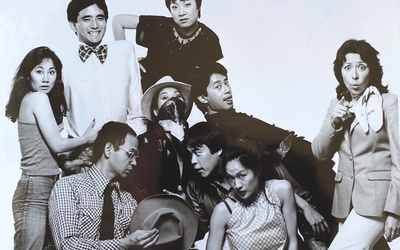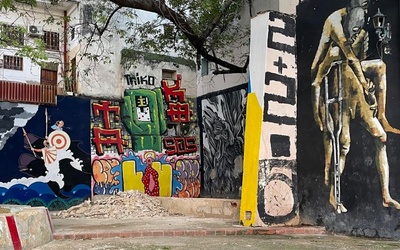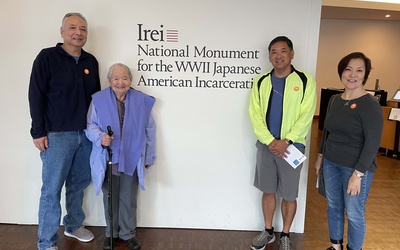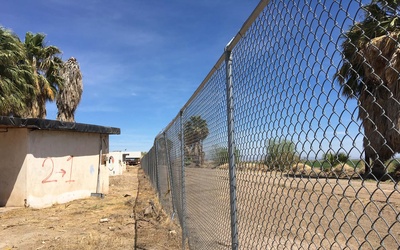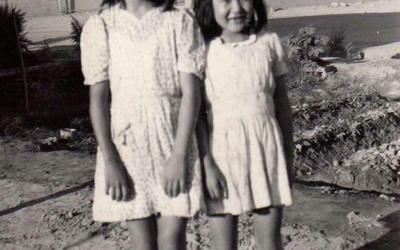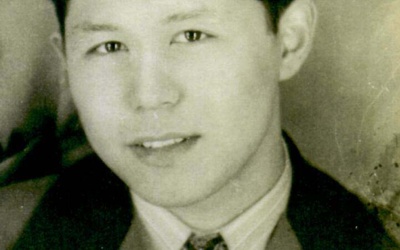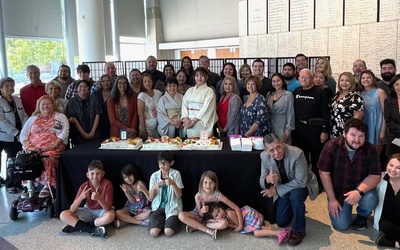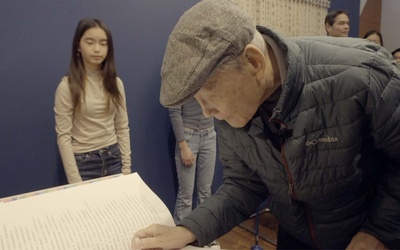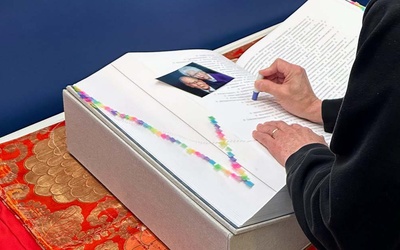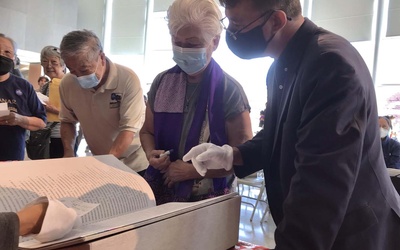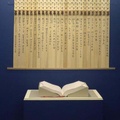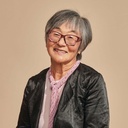
Sharon Yamato
@Sharony360Sharon Yamato é uma escritora e cineasta de Los Angeles que produziu e dirigiu vários filmes sobre o encarceramento nipo-americano, incluindo Out of Infamy , A Flicker in Eternity e Moving Walls , para os quais escreveu um livro com o mesmo título. Ela atuou como consultora criativa em A Life in Pieces , um premiado projeto de realidade virtual, e atualmente está trabalhando em um documentário sobre o advogado e líder dos direitos civis Wayne M. Collins. Como escritora, ela co-escreveu Jive Bomber: A Sentimental Journey , um livro de memórias do fundador do Museu Nacional Nipo-Americano, Bruce T. Kaji, escreveu artigos para o Los Angeles Times e atualmente é colunista do The Rafu Shimpo . Ela atuou como consultora do Museu Nacional Nipo-Americano, do Centro Nacional de Educação Go For Broke e conduziu entrevistas de história oral para Densho em Seattle. Ela se formou na UCLA com bacharelado e mestrado em inglês.
Atualizado em março de 2023
Stories from This Author
No começo havia Cold Tofu
17 de Abril de 2024 • Sharon Yamato
Tenho a sorte de conhecer duas mulheres talentosas, brilhantes e de grande coração - Denice Kumagai e Marilyn Tokuda - que também são as mentes criativas por trás da formação da inovadora trupe de improvisação asiático-americana da comunidade de Los Angeles, Cold Tofu. Até hoje, de acordo com seus fundadores, “Cold Tofu continua sendo a primeira e mais antiga trupe de improvisação e comédia de esquetes asiático-americana do país”. Luminares como Amy Hill, Sab Shimono e Dom Magwili são apenas …
Encontrando alegria em Cuba
11 de Janeiro de 2024 • Sharon Yamato
É difícil imaginar alguém viajando para Cuba e voltando inalterado. É um lugar que resistiu aos extremos da enorme riqueza e pobreza, da escravatura e da revolução, da ajuda soviética e do embargo dos EUA. Apesar destes altos e baixos históricos, há uma vibração nas ruas, na cultura e nas pessoas que é inebriante. As ruas transbordam de música pulsante, danças atraentes, carros coloridos e arte onipresente – tudo isso apesar da pobreza esmagadora que só piorou devido à pandemia …
O Legado da Resistência: Família Nimura/Kashiwagi em Ireichō
1 de Novembro de 2023 • Sharon Yamato
Sinto que paguei muitas vezes pelo cargo que assumi em Tule Lake. Certamente, você não sai por aí contando às pessoas que passou algum tempo em Tule Lake durante a guerra. Você tenta empurrar isso para algum lugar e não pensa sobre isso. Você tenta bloquear essa parte da sua vida, mas tem que conviver com isso. —Hiroshi Kashiwagi, Natação no Americano Dos aproximadamente 125.000 nomes de ex-detentos listados em Ireichō, mais de 12.000 deles já foram evitados e segregados …
Redescobrindo Poston
15 de Setembro de 2023 • Sharon Yamato
Há um ditado familiar que diz que quando os nisseis se reúnem, uma das primeiras perguntas feitas é “Em que acampamento você estava?” Suponho que seja quase como perguntar onde você cresceu, mas definitivamente tem mais significado. Por exemplo, há uma forte natureza proprietária em campos individuais. Quando fui para Heart Mountain em 1994, para a primeira de dezenas de viagens ao Wyoming, presumia-se que meus pais estavam detidos lá, e tive que confessar com relutância que não. Para não …
Voltando para casa: a jornada da minha família para Ireichō
15 de Agosto de 2023 • Sharon Yamato
E o que vemos é a nossa vida se movendo assim ao longo das bordas escuras de tudo, faróis varrendo a escuridão, acreditando em mil coisas frágeis e improváveis. Olhando para a tristeza, desacelerando para a felicidade. . . —Mary Oliver, “Voltando para Casa” Foi como voltar para casa quando 17 irmãs, primos, netos e cônjuges, alguns deles vindos de diferentes partes do mundo, se reuniram no dia seguinte a uma grande reunião familiar – desta vez para homenagear membros …
Um homem humilde: 442º veterano Hiroshi Kunimura homenageado em Ireichō
4 de Julho de 2023 • Sharon Yamato
Quando Dennis Kunimura sugeriu a seu pai, Hiroshi Kunimura, ex-artilheiro da 442ª Equipe de Combate Regimental (RCT), de 98 anos, que eles dirigissem de sua casa em Ogden, Utah, para Los Angeles, para marcar os nomes em Ireichō dos membros da família detidos tanto no Centro de Assembléias de Salinas quanto no Campo de Concentração de Poston, o Kunimura mais velho não esperava a recepção esmagadora que o aguardava. Na verdade, quando o soldado idoso foi recebido por uma equipe …
Uma reunião de família milagrosa: os descendentes mestiços de Wasuke Hirota comemoram em Ireichō
17 de Maio de 2023 • Sharon Yamato
O som de vozes alegres e emoções comoventes ecoou pelo Aratani Hall do JANM quando, em 27 de abril de 2023, cerca de 50 familiares de ascendência hispânica, nativa americana e japonesa se reuniram para a celebração do 150º aniversário de seu ancestral Issei, Wasuke Hirota. Adultos e crianças de todas as idades chegaram de lugares próximos como Azusa, Califórnia, e de lugares distantes como Osaka, Japão, para prestar suas homenagens carimbando Ireichō , o livro sagrado no qual o …
Vivendo, morrendo e transmitindo - família Alan Nishio em Ireichō
28 de Março de 2023 • Sharon Yamato
Enquanto os céus de Los Angeles começavam a clarear após a primeira onda de chuva gelada de março, uma reunião familiar de três gerações estava sendo realizada para marcar Ireichō, o livro como monumento aos encarcerados durante a Segunda Guerra Mundial. A convocação da reunião íntima era um rosto familiar na comunidade Nikkei, alguém celebrado pelas suas décadas de liderança altruísta e compromisso com causas como estudos asiático-americanos, reparação e reparações, preservação de Little Tokyo, direitos LGBTQ, empoderamento dos jovens …
Lembrando-os – Família Tsuchiya homenageia os mais velhos por meio de Ireichō
27 de Fevereiro de 2023 • Sharon Yamato
Enquanto vivermos, eles também viverão, pois agora fazem parte de nós, assim como Nós nos lembramos deles. —Sylvan Kamens e Rabino Jack Riemer Estas palavras de dois rabinos judeus foram lembradas por dois irmãos nipo-americanos que decidiram voar de Minneapolis a Los Angeles com o único propósito de marcar os nomes de seus ancestrais em Ireichō, o livro sagrado que lista todos os detidos durante a Segunda Guerra Mundial. . A experiência despertou uma avalanche de memórias para toda a …
Desenterrando maneiras de homenagear seus ancestrais – Kyoko Oda e Ireichō
27 de Janeiro de 2023 • Sharon Yamato
Às vezes é preciso uma mulher de fala mansa como Kyoko Oda para usar seu charme para garantir que as vidas de 125.284 nipo-americanos encarcerados não sejam esquecidas. Alguém gentil por fora, mas não menos poderoso por dentro, pois trabalha em múltiplas funções chamando a atenção para as vidas que mudaram para sempre pela detenção em massa. Isso pode ser visto em seu trabalho ao publicar o Diário de Tule Lake Stockade de seu pai; trabalhando incansavelmente em nome da …

